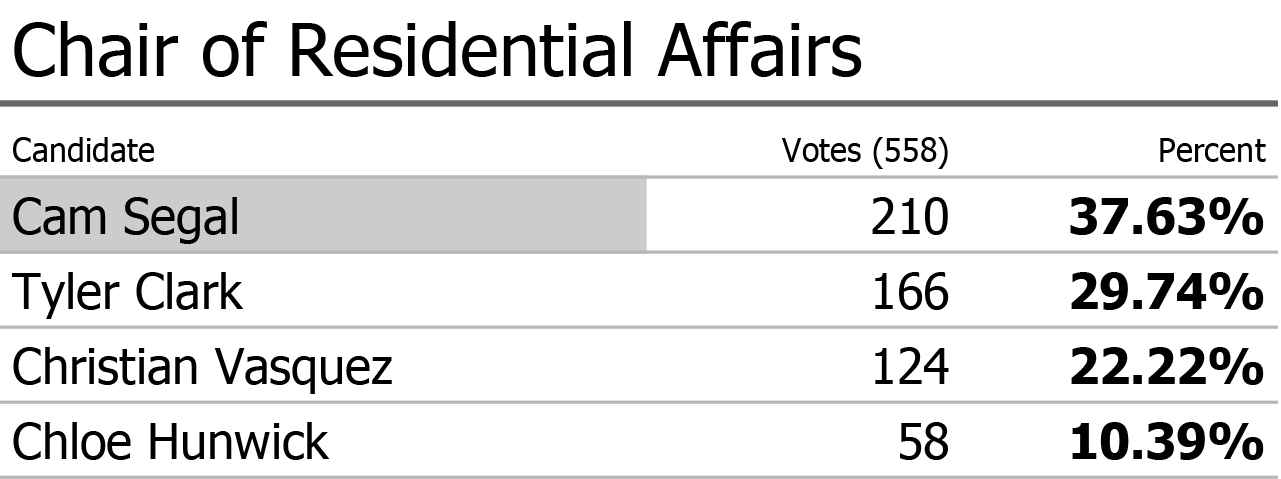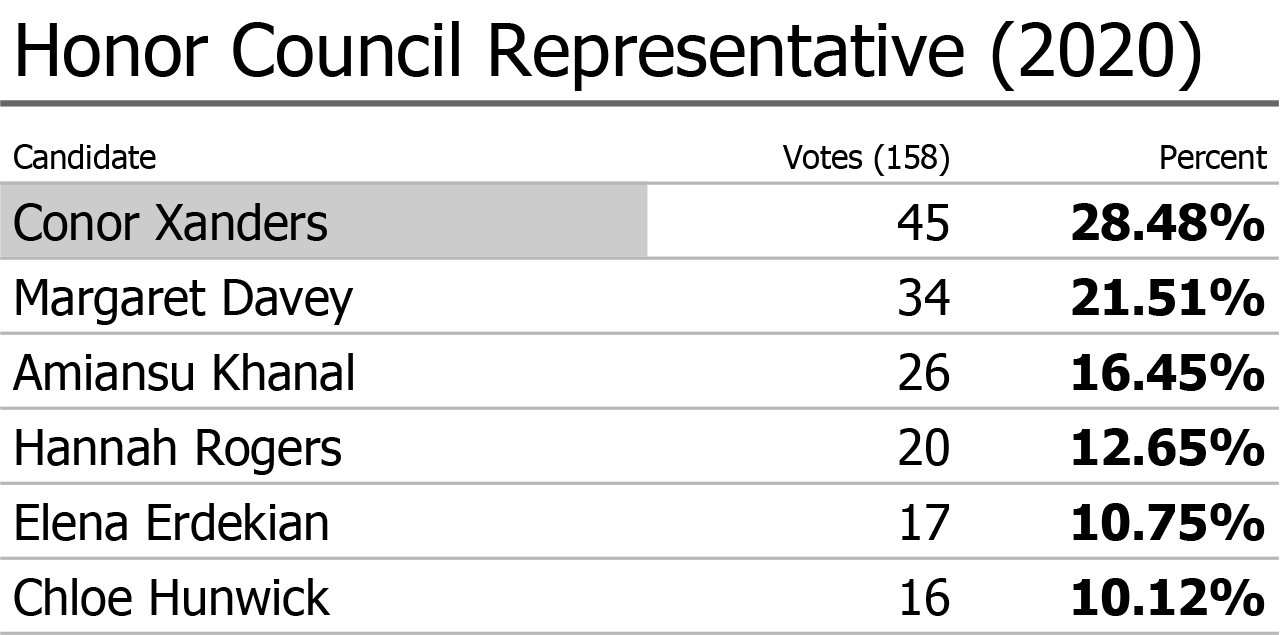The last in the series of likely unread SGA emails revealed the winners of the three recent elections: Chair of Equity and Inclusion, Chair of Residential Affairs, and Junior Honor Council Representative. Although many of us abstain from voting out of pure inconvenience (who knows how to log onto Connquest anyway?), the SGA Constitution mandates that at least twenty percent of either the student body or relevant class year votes in order for the election to be considered legitimate. Importantly, the three recent elections were special because the Chair of Equity and Inclusion position became available last semester since the current chair went abroad while both the Chair of Residential Affairs and Junior Honor Council Representative positions became available due to a student withdrawing from the College. For students who want to see change on campus, the election process plays a key role in working to fix issues regarding the Failure to Act clause, diversity and affinity groups on campus and REAL Staff policies.
Asa Peters ‘19 successfully ran for Chair of Equity and Inclusion because he felt that as a senior he wanted to finally become more involved in SGA. The Chair of Equity and Inclusion aligned well with his own interests and values, so he felt that it was the right opportunity to become a more active presence on campus. His campaign platform was informed by his own experiences. Peters said that earlier in his college experience, he didn’t feel too great around here, in terms of my identity.” However, he started to become comfortable exploring his own identity and how it fit into Conn through classes, lectures and talking with friends. As Chair of Equity and Inclusion, Peters hopes to use his new position to continue “making environments on campus affirm people’s identities and make everyone feel like they can really thrive here.” His framework for working as the Chair is influenced by ideas that Paolo Sanchez ’18 articulated as the Chair last year–creating a large SGA committee of affinity groups, offices and centers “where people who may be facing similar issues on campus might collaborate.” Peters also created a committee trying to “assure consistency in how student employment operates across campus.” Additionally, he feels that it is our duty as students to celebrate diversity and ensure equity through being active in the structures in place at the school including centers, offices and student organizations. Peters won 30.8% of the vote.
After Sean Soucy withdrew from Conn, Chair of Residential Affairs became vacant. Therefore, many candidates used their campaigns to address the controversy surrounding REAL staff policies like the Failure to Act clause and similar issues regarding the relationship between students and administration. However, Cam Segal ’20, who won 37.6% of the vote, did not pull from the controversy. Instead, he campaigned as a Morrison Housefellow who wants to be a liaison between residents and housing staff. His campaign also focused on promising larger-scale events that built off of initiatives he had previously spearheaded as a Housefellow, including bringing therapy dogs to campus, holding music nights and bringing in a comic hypnotist. As Chair of Residential Affairs, Segal will lead two SGA committees, one more broadly focused on residential life and another that focuses on REAL Staff policies. Some residential life ideas include having water fountains and printers in residence halls and an additional budget for snacks in dorms.

A Junior Class Honor Council Representative seat also became open at the beginning of this semester. Conor Xanders ’20, who had been on Honor Council as a sophomore, ran as an advocate for students and won 28.48% of the vote. His campaign promoted more transparency between Honor Council and the student body–balance that can be hard to strike while maintaining individual privacy. Xanders, however, feels students carry misconceptions about how the Council works. On Honor Council, Xanders wants to serve as a resource to students as “someone they know has a vibrant social life, they know has made mistakes in the past, and they know will continue to do so.” He also wants to be a part of changing the parts of Honor Council and the Honor Code that students are unhappy about, including the Failure to Act clause. Xanders articulates that Honor Council requires fundamental restructuring. On Honor Council, Xanders sometimes feels like he cannot take the context of students’ actions into account because he is “trained to go by precedent […] not to deviate from sanctioning.” More specifically, he feels that the Failure to Act clause is too broad and therefore sanctioning based on the clause is mostly an “interpretive science,” which is not always fair. The clause does not stipulate a uniform degree of sanctioning but instead dictates that sanctioning vary case by case. Not only that, but Xanders points out that “there is not a single student on this campus who has not violated the Failure to Act clause at some point.” The Failure to Act clause ultimately “exists as a policy to create fear,” Xanders says. Xanders hopes to work as an advocate for students by spreading information about the Honor Council and its processes since a lot of it tends to be clouded in mystery.

As students continue to receive emails from SGA to run for positions, attend speech night, and vote on Connquest, they need to keep in mind that SGA will continue to work towards changing and creating policies that will affect the student body for better or for worse. •









